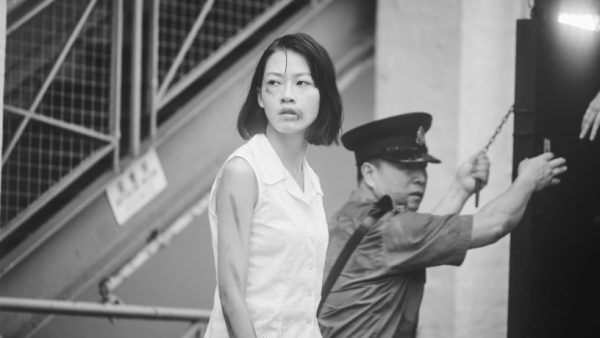As part of Edinburgh International Film Festival
This low-budget drama concerns two protest movements occurring in Hong Kong – the 1967 pro-China demonstrations on Chung Ying Street against the British colonial government and a hypothetical protest in 2019 involving members of the pro-democracy Umbrella Movement. The film follows two sets of teenagers in each timeline. The pro-Communist mainland immigrant Chun Man (Yau Hawk Sau), his girlfriend Lai Wah (Fish Liew) and her rich admirer Chi Ho (Lo Chun Yip) are involved in the 1967 protests. In 2019, pro-democracy activists Sze Wai (Liew), Yat Long (Lo) and Yee Hong (Yau) are reunited in their attempts to protest the building of a Mainland-oriented shopping mall on the home of Wingkuen (Chan Kin Long in 1967, Yeung Sau Churk in 2019), a mainland immigrant who was also caught up in the 1967 protests.
Director Chiu effectively uses his limited budget, focusing more on the effects of the respective protests on the characters rather than on the large scale demonstrations themselves. This allows him to develop the respective settings as well as the teenagers. The 1967 section captures the atmosphere of colonial Hong Kong, where Maoist supporters sit alongside teenage girl fans of Hong Kong actress Josephine Siao, as well as the conflict between the revolutionary Chun Man and the pro-British Lai Wah and Chi Ho. In contrast, the 2019 section reflects Hong Kong’s current situation, where Mainland Chinese interests increasingly take precedence over the wishes of the locals and Sze, Yat and Yee’s involvement in the 2014 pro-democracy protests appears to have had little effect.
Chiu shows the similarities between the two situations not only through the dialogue of Wingkuen, who notes that the 2019 protest is the mirror image of the 1967 demonstrations, but also in the repetition of the conflicts between teenager and parent that occur in both narratives. Chun Man and Lai Wah clash with their parents about their involvement in the pro-Communist protests, and Yee’s parents desperately search for their son, who had initially been assumed drowned during the 2014 protests, but who had in reality gone into hiding.
However, despite the drawing of these parallels, there is a clear anti-Communist message that runs throughout the film. Chun Man’s idealisation of Communism is countered by not only Lai Wah and Chi Ho, but also Wingkuen, who notes in 2019 that whilst Hong Kong residents had no democracy under colonial rule, they at least had freedom. This message deliberately attacks Hong Kong’s present day situation as a Special Administrative Region of China and gives the film a subversive quality that many contemporary Hong Kong productions choose to avoid for commercial reasons.
As a result, No.1 Chung Ying Street not only serves as an effective commentary on how, for Hong Kong, history repeats itself, but also as an assertion of Hong Kong as a separate entity from China, a position that appears to be becoming increasingly untenable these days.
